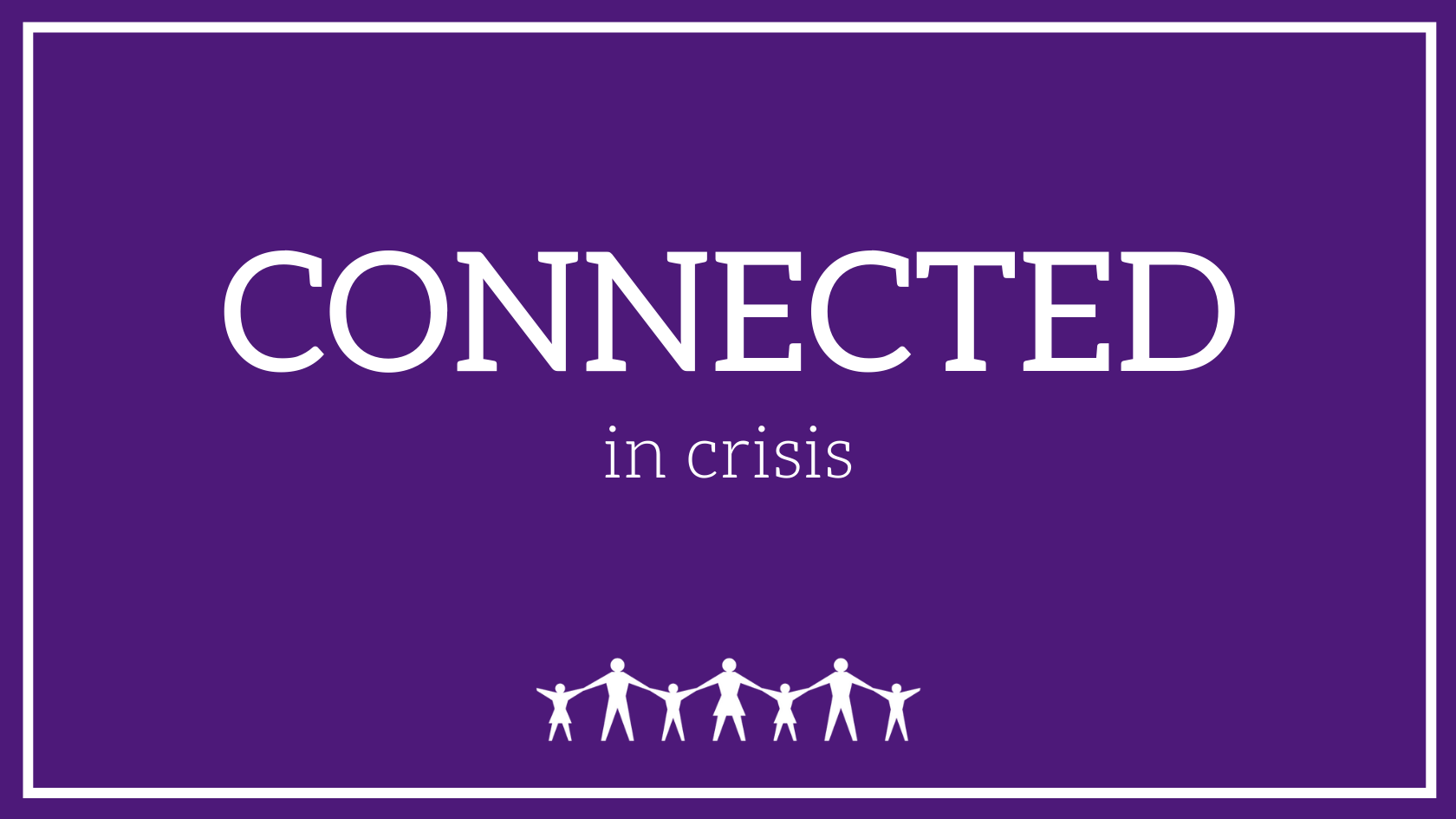
Editors note:This post is from our Founder and Director, Dr. David Cross in light of COVID-19 (Coronavirus). We hope you are all staying healthy, safe, and connected during this strange and uncertain time.
Connected in Crisis
by: Dr. David Cross
When I was a child, we were asked to crouch under our desks during nuclear attack drills. We lived with the fear of nuclear attack, and we demonized the “Red Menace,” which included both Communist China and the USSR. My father fought in World War II, and during that conflict – especially in the period after the surprise attack on Pearl Harbor – those who lived on the West Coast feared a Japanese invasion, and they demonized the “Yellow Peril.” David Brooks, a correspondent for the New York Times, has researched the “Spanish Flu” pandemic of 1918-1920 (which, by the way, killed more humans than did World War I, and did not originate in Spain), and noted how poorly people – in general – treated one another. Similar social dynamics were in play during the “Black Death” (bubonic plague) that swept through the “Old World” in the 14th century. As adults, my generation experienced some of these same dynamics during the AIDS outbreak during the 1980s, when gay men were demonized.
Today we are faced with a new threat, COVID-19, otherwise known as the coronavirus. And we are seeing many of the same dynamics that we have seen in the past: fear and demonization of the “other.” How do we respond? Obviously, what matters most is that, as a nation, we find a way to manage the virus itself. But it is also important that we, both as a nation and in our personal lives, manage the fear that stalks each and every one of us during times such as this. And now I can state my main point: Those of us who serve and care for “children from hard places,” know about fear first-hand, and know intimately its impact on the lives of children, youth, and adults. The opposite of fear is felt-safety, and we know how to promote felt-safety, and that is through connection. Connection is also the foundation for resilience, and goodness knows we will need all of the resilience we can muster in the months ahead.
So, how do we promote connection when managing the virus itself requires isolation and distance? We all know that there is no good substitute for a good hug, and that human touch is essential to human wellbeing. But we also know that we humans have found ways to overcome separation and distance – in positive ways – for millennia. Soldiers write letters to their families, friends, and loved ones. Even when our son, Nate, was stationed in Iraq or Afghanistan, he called us once or twice a month. We can Facebook (is that a verb?), text, email, and zoom. We can send e-cards. We can share stories. Dr. Scott LePor shared with me a cartoon this morning that showed a cartoon character with an anxious look on his face, and a heading that reads, “When you find out that your normal daily lifestyle is called “quarantine” – Scott added a note that said, “My avoidant revelation.” We also need humor, even though there is nothing funny about COVID-19.
Many of us decried texting when it first became available, but research has shown it is an effective way to stay connected, as is writing a letter, or sending a card. So let’s stay connected, so we can feel safer, and we can be more resilient. And let’s reach out to those who might not be so well endowed with “Friends and Relations,” as Rabbit might have said in the Hundred Acre Woods. Those of us at the KPICD, who are blessed to be well endowed with “Friends and Relations,” will be doing all we can to stay connected, and doing whatever else we can think of to help us all get through these difficult times. Which brings me to the last point I wish to make: I started this letter with a list of truly horrible seasons in the human journey – but we survived them all. There will be nothing easy or certain about this, but we will come out the other side. So let’s stay connected, and get through this together.
Thanks, Dr. Cross, for your timely message of hope and encouragement. Best wishes to you all.
Thank you David. Hope all at the Institute are doing well. We thank you for this message and for the critical leadership provided by the Institute in understanding and meeting the needs of children, youth and families that have experienced trauma.